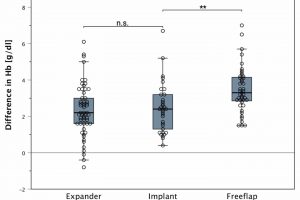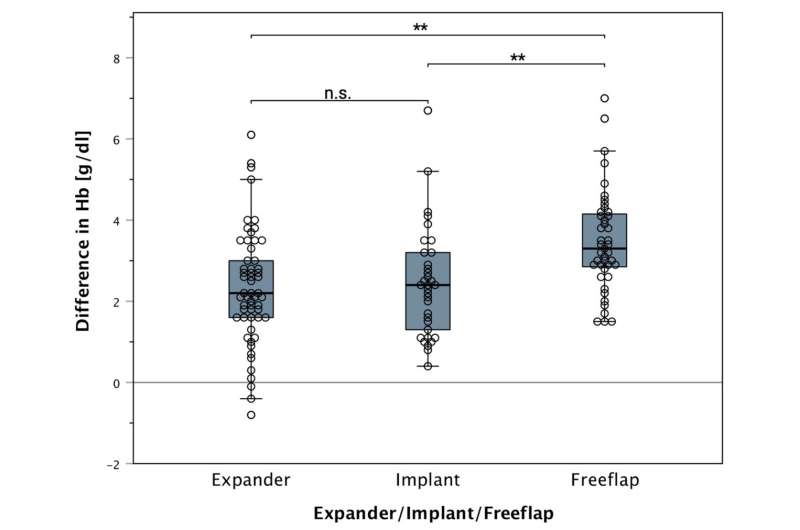New risk factors identified during recovery after breast reconstruction


Factors such as anemia and anticoagulants have more impact on hospitalization time after breast reconstruction than “common” risk factors. That is the outcome of a study carried out by the Karl Landsteiner Private University of Health Sciences in Krems (KL Krems) published in the Journal of Clinical Medicine. The study analyzed the impact of different factors on postoperative blood loss and drainage fluid volume. These two factors can increase hospitalization time of patients after breast reconstruction following mastectomy due to breast cancer and delay subsequent cancer treatment. The findings of the study allow for an improved risk assessment and planning of reconstructive breast surgery to offer patients personalized and improved treatment.
Breast cancer surgeries often require partial or total mastectomy. To lessen the added psychological stress on cancer patients, reconstructive breast surgery is an integral part of oncological treatment. Fast wound healing after surgical breast reconstruction is critical to not delay the subsequent cancer treatment often indicated. Factors that influence the length of hospital stay (LOS) or wound healing are therefore particularly significant in cancer treatment. The study carried out by the Department of Plastic Surgery at the University Hospital of St. Poelten, KL Krems, belonging to the Breast Health Center of Central Lower Austria, has now identified risk factors not yet recognized.
Healing reconstruction
The team of surgeons collected data of blood loss and drainage fluid volumes after breast reconstruction due to breast cancer. Both parameters are closely linked to the healing process and LOS where lower loss equals earlier patient discharge and early start of subsequent treatment. “We analyzed factors that might affect blood loss and drainage fluid volumes after surgery—but can be identified before the surgery,” explains Dr. Tonatiuh Flores, leading author of the published study and plastic surgeon at KL Krems. “These factors included age, body mass index and smoking status—factors that are known to have a strong impact on the course of disease.” In addition, hemoglobin levels and possible antithrombotic prophylaxis were reviewed—two parameters that are particularly significant in oncological treatment.
The data evaluation of a total of 257 breast reconstructions in 195 patients produced surprising results. Post-doc Prof. Dr. Konstantin Bergmeister, Ph.D., senior author of the study, says, “The classic risk factors did not significantly influence postoperative blood loss and drainage fluid output. Hemoglobin levels and anticoagulant concentration, however, did.” The evaluation showed a close relation between low hemoglobin values or anemia and fluid loss after reconstructive breast surgery. Prof. Klaus Schroegendorfer, head of the department and co-author expands: “Especially breast cancer patients often show perioperative anemia, caused by the frequently required neoadjuvant chemotherapy which can affect blood values, in particular hemoglobin.”
Anticoagulation and loss
Source: Read Full Article




